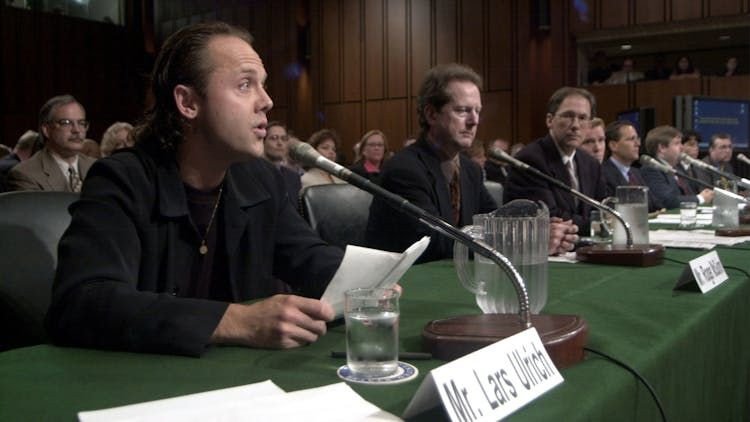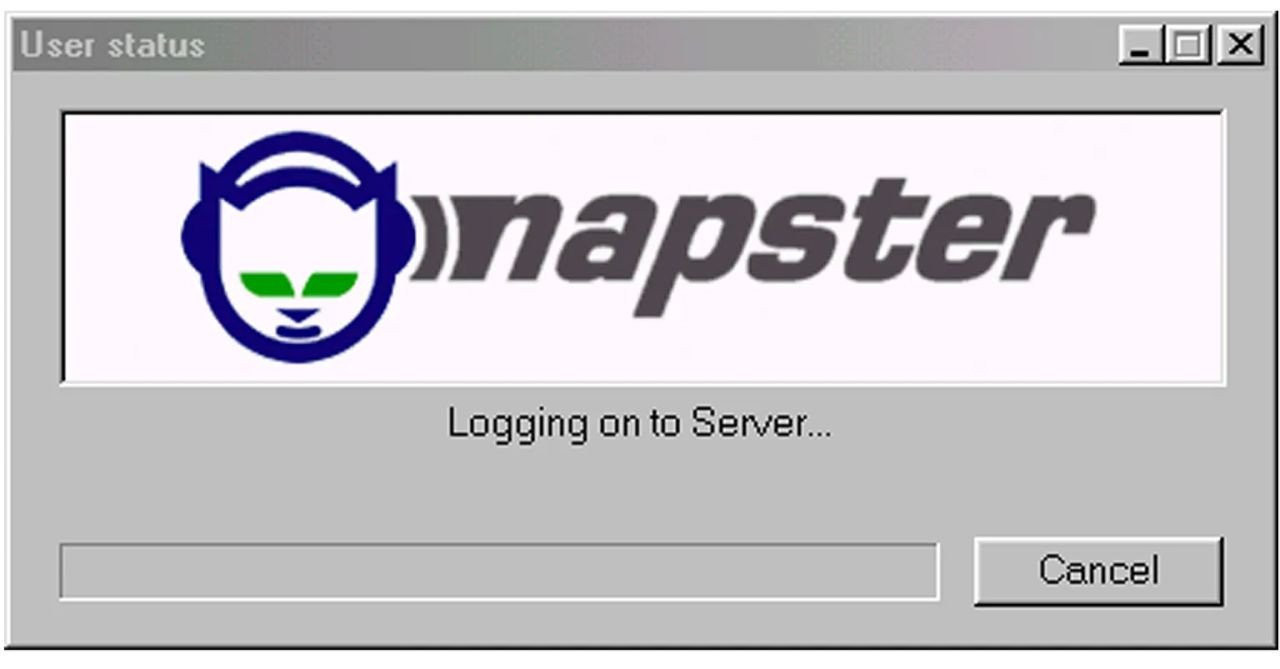Seek and Destroy: Metallica against the independent musician
As we are currently looking at the AI precipice, it might be wise to reflect on a topic that also changed the course of the music industry. Even though it might be unpopular to say it out loud, my gut tells me that Metallica betrayed the independent musician when filing this case.
How could this be?
Let's start from the result: As of 2023, the music industry has become a facade that veers more towards fiction than fact. Rather than basing success off the quality of the music, attention is driven to musicians who stir up controversy and become headlines.
Why did Metallica pursue legal action against Napster?
It is apparent that Metallica were aware of the outcome. Despite winning the case, they didn't receive any financial compensation. I believe this kicked the ball rolling in the industry where making a living as an independent musician became increasingly difficult in the face of copyright law. The concept of piracy was demonized to an absolute extreme degree, leaving listeners and musicians alike with a binary view of justice and morality.
The legal dispute between Napster, the pioneering peer-to-peer file-sharing platform, and the popular metal band Metallica, has had profound and long-lasting implications for the music industry and the independent musicians within it. This landmark case, along with other copyright infringement cases and the eventual implementation of digital rights management (DRM) technologies, has hindered the advancement of independent music and stifled their ability to present their art in unprotected forms.
This article will explore the legal battle between Napster and Metallica and how it has adversely impacted independent musicians. In addition, it will discuss how the court decisions resulting from the Napster case, as well as other copyright infringement cases and DRM technologies, have prevented independent musicians from performing in venues that do not pay royalties to Performers Rights Organization (PRO) societies such as ASCAP and Sony.
The Napster-Metallica Debate and its Impact on the Music Industry
In order to understand the impact that the Napster-Metallica debate had on independent musicians, it is important to understand a bit of the history behind the case. Napster was an early file-sharing platform that allowed people to share music files with other users. However, Napster did not have any form of DRM technology in place, which made it relatively easy for people to download music illegally. In response, Metallica filed a lawsuit against Napster in April 2000, alleging that Napster violated the band's copyrights and had caused the band to lose potential royalties from their songs.
This case had far-reaching implications for the music industry, as it was one of the first cases in which copyright infringement was alleged to have occurred due to the actions of a third-party platform. The legal decision that was eventually reached in the case had a drastic effect on the industry. According to the ruling, Napster was held liable for "substantial and willful copyright infringement" and was forced to shut down its service. This decision set a precedent for other file-sharing platforms to be held accountable for their users' illegal activities and lead to a flurry of lawsuits and settlements against sites such as Limewire, Grokster, and Kazaa.
The Impact on Independent Musicians
The Napster-Metallica case, and the subsequent rulings related to copyright infringement, had a profound effect on the independent music industry. One key aspect of this ruling was the introduction of DRM technology. Such technology was often imposed by labels and other copyright holders as a way to protect their works from being distributed illegally. This had a chilling effect on independent musicians, as it made it exceedingly difficult for them to distribute their music without the permission of a label or other copyright holder.
Furthermore, the Napster case highlighted the difficulties that independent musicians face in not just distributing music, but also in getting it to an audience in the first place. This is because the court ruling found that even if a user had not committed any copyright infringement, they could still be held liable for "contributory infringement" if they facilitated or encouraged such activity. This means that users of peer-to-peer networks—who may be providing a platform for independent musicians to reach an audience—could be subject to legal action. This has had a damaging effect on independent musicians, as they are often reluctant to use such services to promote their music, due to the fear that they could be sued.
The impact of the Napster-Metallica case has also been felt in the form of the proliferation of PRO societies such as ASCAP and Sony. These societies are collections of copyright owners who collect royalties for their members and distribute them to other members who have licensed the use of their copyrighted material. In the wake of the Napster-Metallica case, these societies have become increasingly powerful, as they are seen as a way for copyright holders to protect their works and receive compensation. However, while this is beneficial to record labels and major music publishers, it often acts as a barrier to independent musicians, as they may be unable to afford the fees associated with joining a PRO society. As a result, many independent musicians are unable to perform in venues that do not pay royalties to PRO societies.
Conclusion
After two decades, one can see that the Napster-Metallica case had a profoundly negative impact on independent musicians, as well as the music industry as a whole. Copyright infringement lawsuits became the avenue to inflict more control over the music. The introduction of PRO societies (along with their associated fee structures) has served as a barrier to independent musicians, preventing them from performing in venues that do not pay royalties to these societies. As such, the Napster-Metallica case has drastically altered the landscape for independent musicians, making it increasingly difficult for them to protect their works and make a living from their art.
When you subscribe to the blog, we will send you an e-mail when there are new updates on the site so you wouldn't miss them.






